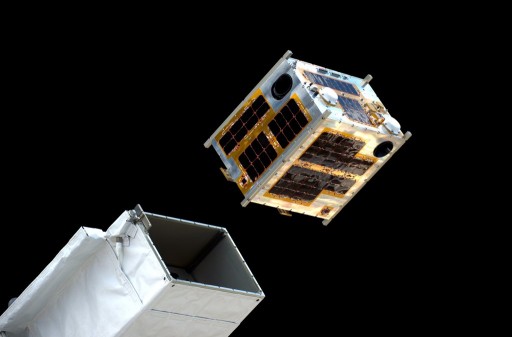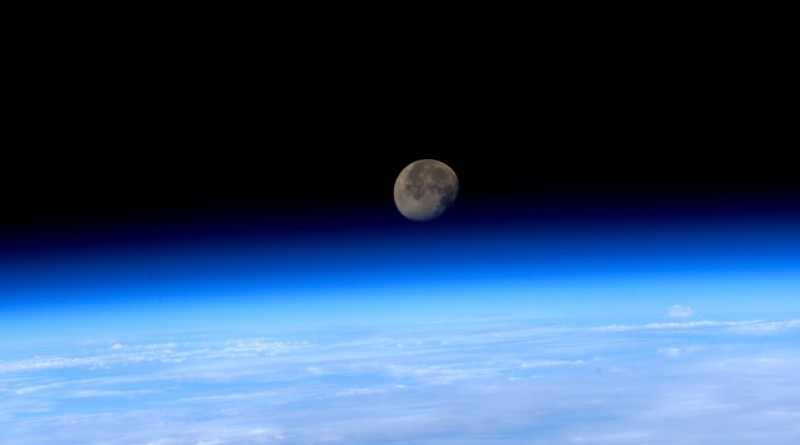ISS Operations Update – April 27, 2016

Microsatellite Deployment:
The Filipino Diwata-1 Microsatellite was successfully deployed by the Japanese Remote Manipulator System. See our detailed article for more.
Experiments:
Genes in Space – Experiment Prep [Genes in Space is a student-developed experiment to test whether the polymerase chain reaction (PCR) can be used to study DNA alterations aboard a spacecraft. Spaceflight is known to cause alterations to human DNA and lead to weakened immune responses in astronauts. Understanding whether DNA changes and immune system degradation are linked is a major objective in ongoing space research, but DNA technology that would enable monitoring of these changes is not fully tested in space.]
ENERGY Experiment Session Day 6 [Energy = Astronaut’s Energy Requirements for Long-Term Space Flight – Human Research Payload. ENERGY measures changes in energy balance during long term space flight, adaptations in the components of the Total Energy Expenditure and it will derive an equation for the energy requirements of astronauts. For the crew members, ENERGY includes a special diet, urine sampling, oxygen uptake measurements and diet logging.]
Fluid Shifts – Imaging Operations [Fluid Shifts Before, During and After Prolonged Space Flight and Their Association with Intracranial Pressure and Visual Impairment. Known as the Fluids Shift study, this experiment is one of the most complex integrated experiments ever performed on ISS using pieces of US and Russian hardware to attempt to quantify the amount of fluid shifting from the lower body to the upper body when transitioning from a gravity to a microgravity environment. This will also lead to an understanding of effects of the fluid shift on fluid pressure in the head, changes to vision and eye structure. Effects on the eye caused by elevated intracranial pressure include globe flattening, choroidal folds, and alteration of the optic nerve.]
NanoRacks Module 9 – Student Experiment Activation / Deactivation
Fine Motor Skills [Fine Motor Skills uses a tablet touchscreen application to monitor degradation in fine motor abilities over the course of an extended exposure to microgravity. A drop in fine motor skills can lead to problems when crew members are tasked with medical treatment, repairing sensitive equipment and interacting with touch-based equipment. Tests utilized by this study include multidirectional pointing, dragging, shape tracing, and object manipulation to create a knowledgebase that will allow scientists to evaluate the risk of fine motor performance decrements due to long-duration exposure to microgravity.]
Dose Tracker [Dose Tracker uses logs kept by crew members on the frequency of medication intake before, during and after a mission also with regards to side effect qualities frequencies and severities. This data is needed to address theories of medication ineffectiveness during flight and unusual side effects experienced in the flight environment.]
Habitability Experiment Ops [Assessment of International Space Station Vehicle Habitability will see teams on the ground study video of the behavior of crew members within the habitable environment of ISS while the crew fills out questionnaires and collects video of areas of interest in order to provide an assessment of the habitability of ISS in its current state for a one-year mission. Results will be used to develop spacecraft with improved habitability properties to allow crew members to optimally utilize the onboard space.]
Identification – Micro-Accelerometer Data Download [The Identification Payload records structural dynamics data inside the individual modules of the Russian Segment to provide structural data to improve spacecraft design.]
Interactions Experiment [‘Vzaimodeistviye’ (Interactions) looks at psychological aspects of long duration space flight during which different cultures come together aboard a Spacecraft such as ISS and seeks to improve crew interactions aboard ISS and with teams on the ground.]
Other Activities:
Nominal Inspections/Servicing Tasks (Morning Inspection, Caution & Warning Panel Check, Sozh System Maintenance) (Russian Crew)
Common Communications for Visiting Vehicles (C2V2) – Test Day 3: Successful Global Positioning System (GPS) Auxiliary Data (GAD) was sent by C2V2-A to the simulated Visiting Vehicle (Electronic System Test Laboratory) and forward link.
Remote Power Controller Module Trip: The LA2B_A RPCM tripped open due to an overcurrent event, investigation underway.
Manufacturing Device (MD) Locker and Cable Setup
Combustion Integrated Rack (CIR) Equipment Removal
Dragon SpX-8 Cargo Operations

